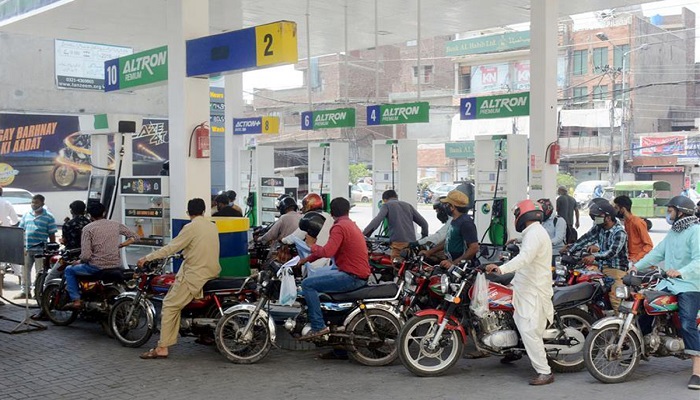Pakistan State Oil (PSO) has termed the news of fuel shortage in the country baseless and said that there is sufficient stock to meet the needs of the country.
The spokesperson for the PSO clarified that there is no hindrance in supply of POL products in the country, adding that as a national institution the PSO is determined to cater petroleum products throughout the country.
According to Oil and Gas Regulatory Authority (Ogra) specific days cover, “We have sufficient stock available in the supply chain and the overall situation regarding the supply of petroleum products across the country is being monitored,” the spokesperson explained.
The PSO is fully ensuring uninterrupted provision of fuel across the country, the spokesperson added.
It is pertinent to mention here, on January 13 2023, oil companies asked the finance ministry to urgently intervene to ensure the timely issuance of letters of credit to import petroleum products to avoid a fuel shortage in the country.
The Oil Companies Advisory Council (OCAC) wrote a letter on January 13 (Friday) on behalf of Oil Marketing Companies (OMCs) and refineries highlighting challenges being faced due to delays in the opening of letters of credit (LCs) for the import of petroleum products.
Pakistan, an energy deficit country, needs to import approximately 430,000 metric tonnes (MTs) of mogas, 200,000 MTs of High Speed Diesel (HSD) and 650,000 MTs of crude oil every month, which costs around $1.3 billion.
OCAC said challenges in opening and confirming LCs has caused delays in multiple cargoes and a few cancellations as well. The situation has severely deteriorated during the current month as banks are declining LCs to industry members.
“If LCs are not established on a timely basis, critical imports of petroleum products would be impacted which may lead to fuel shortage in the country. It may be noted that if the supply chain is compromised, it may take six to eight weeks to normalise,” the OCAC said in the letter.
Aqeel Ahmed Khan, the Chief Executive Officer of HASCOL Petroleum Limited, in a letter dated January 9, 2022, to Governor State Bank of Pakistan (SBP) Jameel Ahmad also highlighted the challenges being faced in opening LCs and import contracts.
[embedpost slug=na-speaker-accepts-35-more-resignations-of-pti-mnas/”]
The HESCO chief explained that the imports of petroleum products requires a definitive financial instrument (in the form of import contracts/confirmed LCS), as per requisite banking regulations, and delays in this regard, despite availability of LC lines, is hampering the oil supply chain, leading to supply disruptions in the country.
Furthermore, the non-availability of import contracts/LCs has had a marked negative effect on international oil suppliers leading to forced cancellation of oil cargoes.
The situation has been especially bleak in the first week of January 2023, whereby Pakistani banks are denying any new LC which will lead to critical shortages of oil at the retail stations in coming weeks, if not addressed immediately, added Khan.
According to sources at the petroleum division, local banks have also regretted issuing LCs to Attock Petroleum Limited (APL) based on the plea that the SBP has instructed them to ration based on the foreign reserves situation.
Pakistan’s foreign reserves held by the SBP have fallen to critical levels, standing at $4.3 billion, the lowest in years, which is enough to cover just three weeks of imports. Total reserves, including those held by commercial banks is just $10.1 billion
Local banks have informed APL that they are not in a position to facilitate any new LC due to the reserves situation. Moreover, APL is also facing issues with the confirmation of import LCs by foreign banks because of curtailed credit limits on account of downgrading of Pakistan’s credit rating being downgraded by international ratings agencies and rising associated risks.
APL, the second largest OMC in Pakistan with a vast network of 731 retail stations, told OCAC in a letter dated 12th January 2023 requested the organisation to immediately take up the matter with authorities to avoid an imminent fuel crisis.



















